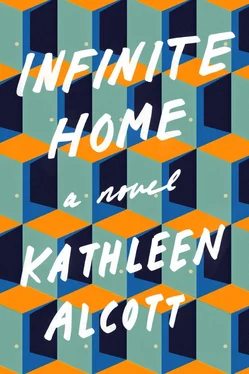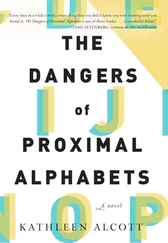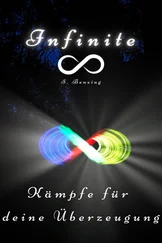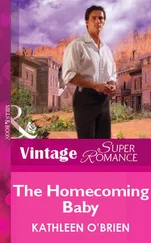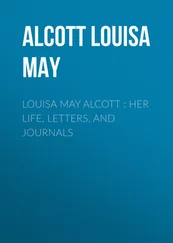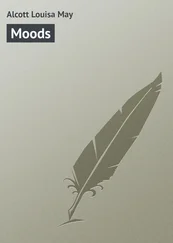Sometimes they talked about their parents. Paulie said things to Claudia that stuck to her, and when she arrived home to her new husband, she lacked the ability to explain what had affected her so and why she couldn’t turn over to him to listen to the story of his day.
“You know, Claude,” said Paulie. “I think that probably Mom and Dad are holding each other under an apple tree, and the roots are all twisted in their bones, and they have these long conversations about us that travel up into the trunk and branches. And that tree makes the best apples anyone has ever had, and people come from miles to taste them. But we don’t get to know exactly where it is or to take a nap under the leaves. Know why? ’Cause we grew up eating those apples.” He could sound like some slightly warped and delirious Hallmark card, a nursery tale fed ayahuasca, but his insistence on determining a why, on explaining away sorrow, made her feel she was some inferior model of human, resourceless, easily jammed.
Paulie rarely seemed unhappy when she left, and liked to make little jokes about the luxuries of the bachelor lifestyle—“Don’t worry about me, sis. Guys like me prefer it alone!”—but still she imagined him all the time, trying his best to navigate physical space, remembering to feed himself and flush the toilet, and she grew hamstrung with the thought of an obligation unfulfilled. She spent $2,400 a month on an aide who came once a day and helped Paulie with chores and escorted him on walks. When he called her at the office to talk about his dreams, Claudia put her work on hold, swiveled her chair away from the desk, and pressed her forehead to the window. She tried to associate him, in lasting ways, with energy, with optimism, with things clean and good. She tried to match every compliment he offered with one of her own. She kept a memo in her phone of all the strange or benevolent things he’d said that had touched her in a particular way and reviewed it on days particularly stressful, those when he called five times to report on the path of an ant or to cry about a smell. She put his music on her headphones at the gym as she increased the tension on the treadmill and opted to look past her reflection, through the windows, where New York changed incrementally, a Korean bodega emptying of its merchandise, a For Sale sign, leaves drifting down as slowly as sleep.

THOMAS’S FIRST IMPULSE to drag a blade across his skin had bubbled up from an overwhelming and noisy spell of boredom that had nagged at the edges of his thoughts until it resounded, inexorable: This is fine, but does it make up a life? His mood had been relatively even earlier in the day, almost pleasant; his anxieties had shifted from the fact of the stroke to how quickly he’d grown used to it, forgotten to miss his left hand. He’d sat at a café around the corner and admired the dogs and the babies sniffing at each other, felt grateful for the temperate fall weather and the breezes he could feel tugging at the warm air, read the last sixty-four pages of a multigenerational saga and felt his throat catch at the death of the stubborn matriarch. With the passing of mid-afternoon, he tightened with the familiar panic of what next and returned home to fix a meal from the varied excess of groceries — the impulsively plucked overpriced fruits and exotic grains — that he bought ritually to ease his feelings of aimlessness. He sautéed a chicken breast in white wine and assembled a salad of spinach and apple, lighting with pride at this small accomplishment as he ate and then feeling disgusted by how his worth was constituted. His heart withered, then, at the long task doing the dishes had become, the awkward manipulations necessary to clean all angles of an object, the plates, he knew, never truly clean. When it finally arrived, the thought came to him like a pleasant, ignorant suggestion from a well-meaning relative— you could just— and it was completely foreign, suddenly divested of associations with troubled teenagers and occurring to him as a compelling option.
That day, after raising a knife up from the sink of soapy water and sighing at a crumb still clinging to the serrated edge, he brought the blade across his left forearm, once so well used but now distinctly smaller than his right. He sliced just deep enough to bring out a steady pulsing of blood, impressed by how his right hand’s fingers still grasped so well that they seemed almost a part of the object. The red traveled down his arm and into the sparkle of soap bubbles. As it reached the water and clung to the oily rainbowed trails, he stood there transfixed by the colors, remembering the joy in seeing one shade meet another, the clumsy affair of two things combining, which felt so slow until it revealed its enduring result.

ADELEINE TREMBLED UNDER THE TEST she had given herself: if she could blend in on the subway, she’d decided, she could forgive herself her retreat, believe that someday she might return to the world of intersections and green park benches and strangers’ elbows. A man opened the door between cars, appeared with a waxen cup and delivered a mumbled speech about poverty and diabetes and spare change for food, and when he flourished it in her direction, she closed her eyes and thought of the clean white sheets on her bed, the red alarm clock that shook like a cartoon, her alphabetized records, the predictable drip of the cold water tap in the bathroom. When she opened her eyes to the world again, he had disappeared into the next car, and she looked around at the other passengers for clues on how to behave: they stared into nothing or electronic screens that cast icy glows upward, making small, swift gestures with their thumbs and forefingers. Five minutes of relative peace followed, but then a crowd of twelve- and thirteen-year-olds in windbreakers and sweatpants boarded, turned on music that screeched and throbbed. As the train tore into lower Manhattan, they defied space with backflips, they looped their knees around the metal rails and reached for one another through the air, they swam down the aisles requesting donations, they chanted in unison. Their energy felt to her like a practiced assault, a technique designed to extract a confession. Tightening her crossed arms, pressing her polished opal nails into her skin until the sensation blotted all else, she curled down into the softness of her knees and remained in that created dark until her stop arrived.
At the station, she made it a few feet into the light above and stopped at the head of the stairwell, where people diverged around her like cars avoiding a spill. At the tail of the rush, a man with a damp face and a burdened suitcase came upon her and stopped.
“Hey,” he said. “Do you need help finding something?”
“I know where I’m supposed to go,” she said, turning a severe bun in his direction. Three bobby pins had slipped halfway out of position, threatening to destroy the form, and the skin of her nape was patched red.
“I don’t need any help getting home,” she said.

IN THE DAYS AFTER THE STROKE, delirious and sleep-sodden as he was, Thomas hadn’t always been sure that Edith’s voice was actually there, outside his door, muttering in circles about her small offerings. Stacked on the worn sandy carpet that ran the length of the hall, the things she had left confirmed it: plates of cheddar mashed potatoes and roasted chicken and dark greens, just cooked, the steam finding a way through the tinfoil; recent New Yorker s and puckered crime novels taken from her own shelf; six-packs of soda water; his mail; a lily in a cracked ceramic mug; a scarf knit into a loop, the signature merchandise of a stormy-faced vendor who was always outside their subway station.
Читать дальше
